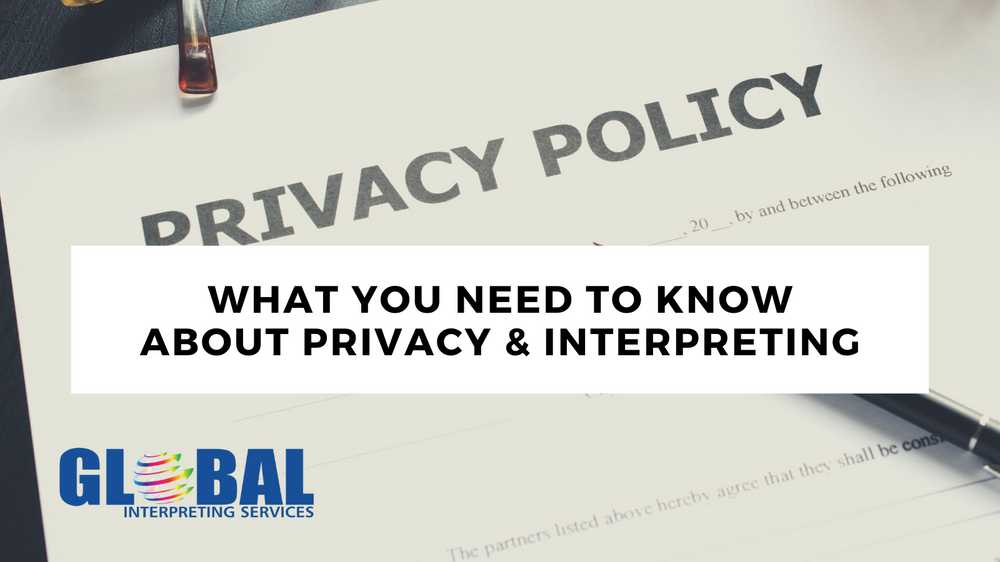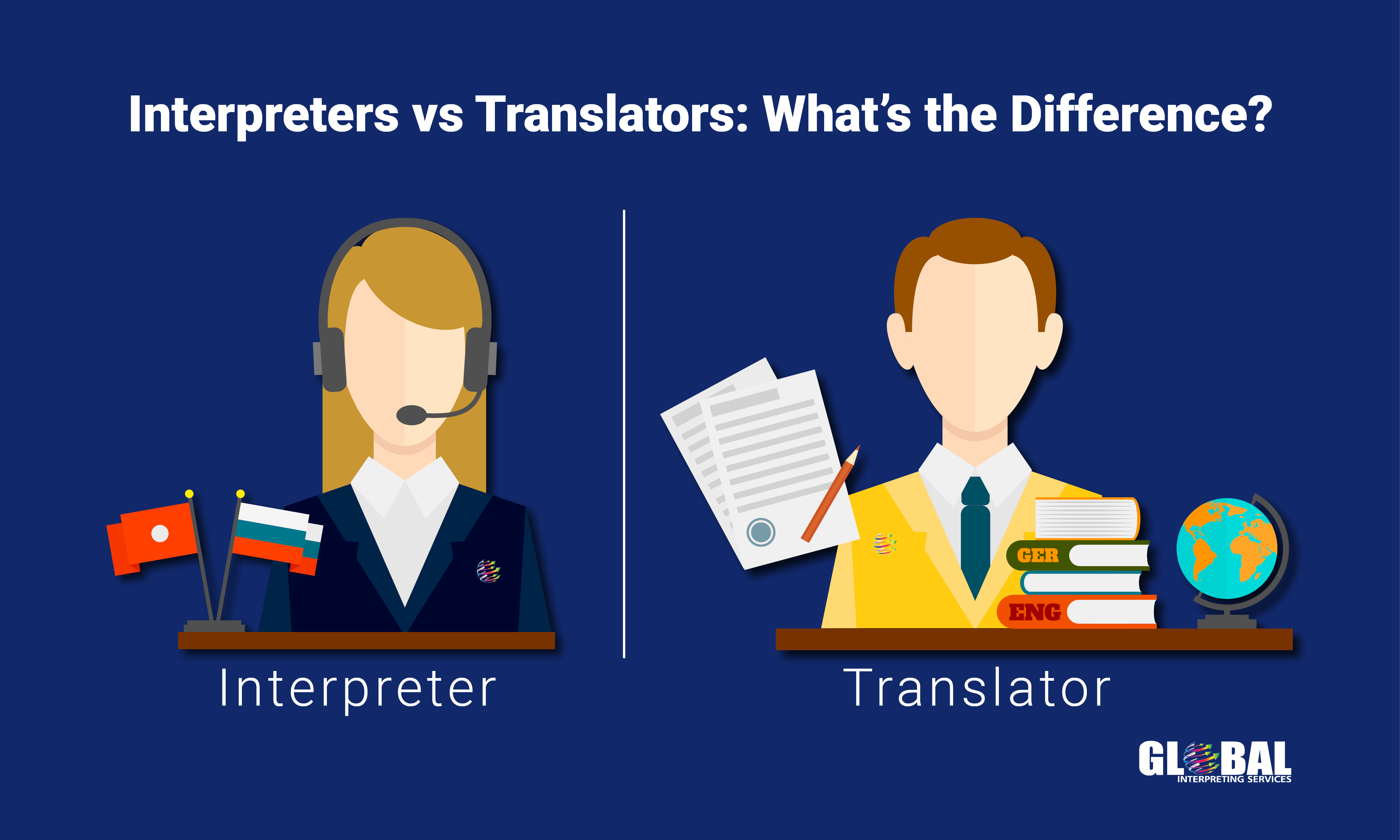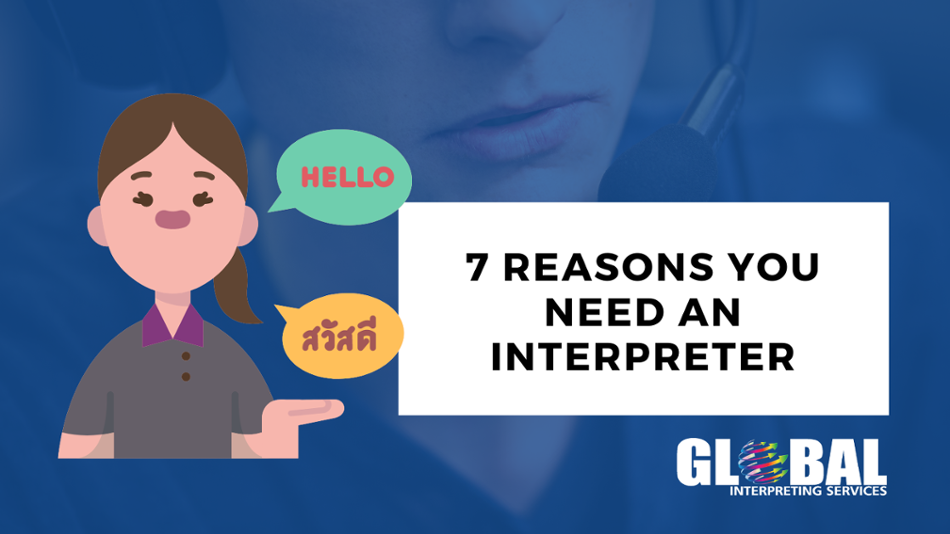Confidentiality can be so overwhelming. The concept of it, the idea of it. The laws that pertain to it. There are lots of privacy laws in the legal world and in the education world. The medical world you has HIPAA...you don't need to be a Doctor to know about that one. I want to speak directly to Medical professionals, Doctors, Attorneys, Mental Health Professionals, Case Workers, Recipient Rights Workers and answer what you need to know about privacy and interpreting. I want to put you at ease and explain the background of Interpreters; both Sign Language and foreign language.
Professional Interpreters abide by a Code of Professional Conduct that stipulates everything that happens during an interpreting assignment is confidential. It also says that the information about the assignment is confidential. No information learned or heard during an Interpreting assignment may be used for personal gain. Let's talk about this a little further.
Sign Language Interpreters
They are certified and when they are certified they have signed an oath stating they will follow the National Registry of Interpreters for Deaf's (RID) Code of Professional Conduct. If they violate that Code of Conduct and someone reports them they can lose their certification or be sanctioned. Sign Language Interpreters are not going to take that risk, they have spent too much time and money and effort to achieve this certification to do that, and they have a high respect for their position.
I may be the CEO and President of Global Interpreting Services, but I am also an RID Certified Sign Language Interpreter. I hold my CI, Certificate of Interpreting, my CT, Certificate of Transliterating, my NIC, National Interpreting Certificate and OTC, Oral Transliteration Certificate. I am a 30-year veteran of Interpreting and if you don't understand what any of those terms mean, that's ok. All you need to understand is this, I worked really heard to obtain those certificates. They weren't free. I work hard to maintain them and I am proud to have them. I wouldn't risk them.
My Father was deaf, he didn't Sign, he was a lipreader. I would be extremely upset if anyone ever breached his confidential information. Interpreters take their jobs seriously. I know my colleagues feel the same.
Foreign Language Interpreters
While there are limited opportunities for some languages to be certified in some venues, not all are able to be certified. In fact, you might say there are less opportunities for certification than you think. When an Interpreter is certified, they sign an oath stating they will follow a Code of Professional Conduct or Code of Ethics.
So how do you know an Interpreter has promised to follow a Code of Professional Conduct if they are not certified? Ask the agency if they have had their Interpreters sign such a statement and given their Interpreters a copy of the Code of Professional Conduct. At Global Interpreting Services we do an Orientation in which we talk about the Code of Professional Conduct and specifically Confidentiality. Each Interpreter signs a statement that they will follow the Code of Professional Conduct. We also discuss ethical dilemmas and the best way to handle them.
Professional Interpreters who have achieved certification generally must maintain that certification with Continuing Education Units (CEU's) and during that process they discuss ethical situations and best practices. In choosing an agency, you want one that uses interpreters that have training.
Mandated Reporting
Nothing stops Interpreters from following the rules of and laws of Mandated Reporting. If an Interpreter sees abuse or a crime, they don't want to become a part of the abuse or crime. They cannot take part in criminal activity. If they do not report it they could have a charge placed on them.
All of the above said, Interpreters will not judge what your situation is. (But in reference to the mandated reporting rule, do I have to spell out please don't use Interpreters for illegal activity? I'm just trying to be considerate for my colleagues.) You and the patient or client need communication. You hire an Interpreter. The Interpreter has a job to do. They come in, facilitate communication and leave. The Interpreter is concerned with comprehension. They want too ensure that to the best of their ability everyone in the situation was able to communicate. You can never guarantee comprehension, but you can ask everyone if they understood your language, if they understand what to do and the directions that were given. When an Interpreter leaves, that is all that they are concerned with. The information is generally not retained for very long. Interpreters work in the short term memory part of the brain, not the long term memory area, so the information usually just fades away.
It's a good idea to have a BAA (Business Associate Agreement) with the agency you work it. If you don't have one you can get one from Google or generally the agency can provide one for you. This is just another layer of protection and spells out expectations.
The agency is following the same rule of confidentiality. For instance, in medical, legal or mental health situations, when you call for an Interpreter, in all of these situations the agency needs the name of the patient or client. If we don't know who we are sending the Interpreter for, we might send a family member or friend. Some the communities are very small. If a persons family member or a friend showed up to interpret and they were uncomfortable or they didn't want them to be their Interpreter, you would have to reschedule. Not only would you be charged for the appointment, but you would have to find time in your schedule again. Worse, if the person didn't say anything and they didn't want the person to know anything that was going on and they proceeded with the appointment and withheld information from you, it would be a failed appointment. Having information before that appointment is critical to its success, if the Interpreter knows the person, they will let us know and decline the appointment. They will never tell the person or any other person they were offered an appointment for the person. It will be as it was never spoken about.
Interpreters want to see a successful interpretation, the agency wants to see a successful outcome for everyone. While confidentiality may seem overwhelming, it's actually pretty straight forward. It's something agencies and Interpreters deal with every day.




